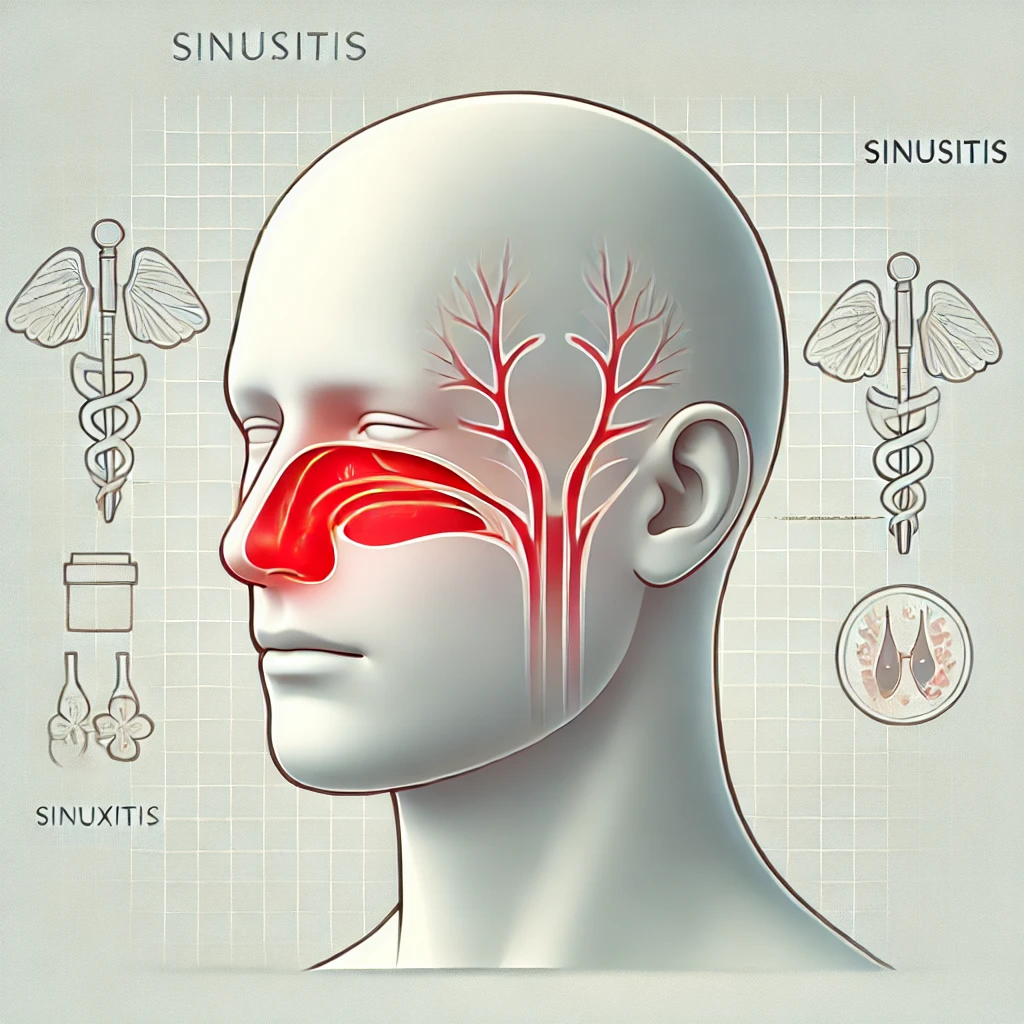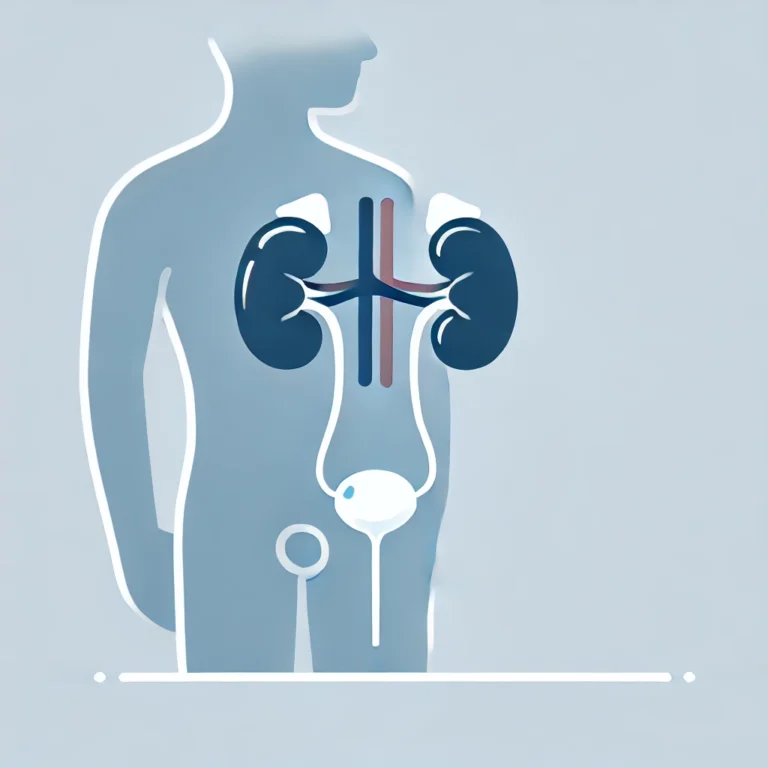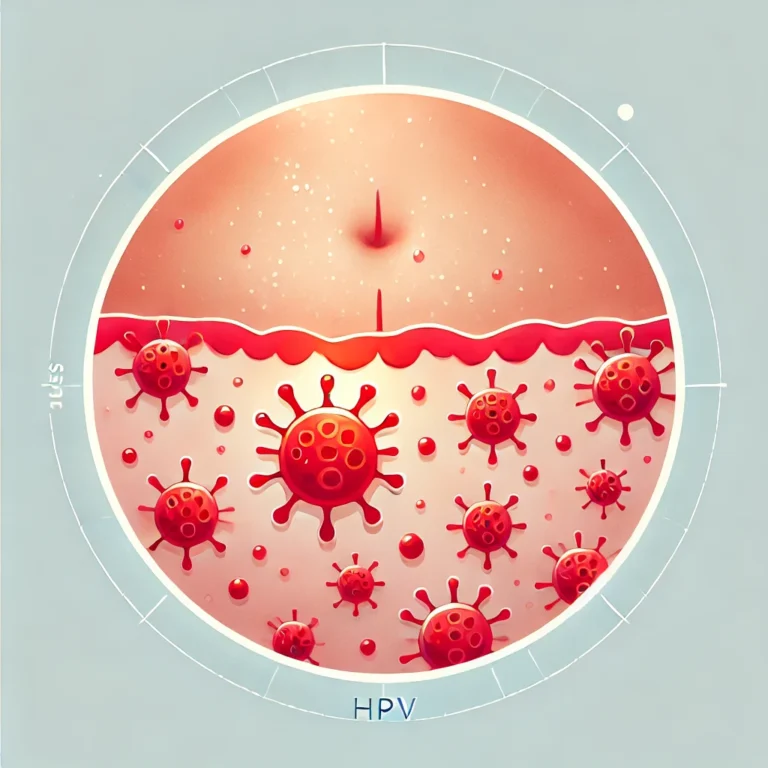Sinusitis, commonly known as a sinus infection, occurs when the tissue lining the sinuses becomes inflamed or swollen. This condition can lead to discomfort and interfere with daily activities. Understanding its symptoms, causes, and treatment options is essential for effective management.

Symptoms of Sinusitis
Sinusitis manifests through various symptoms, which can vary depending on the severity and duration of the infection. Common symptoms include:
- Nasal Congestion: A blocked or stuffy nose is often the first sign of sinusitis.
- Facial Pain or Pressure: Pain, tenderness, or swelling around the eyes, cheeks, nose, or forehead.
- Thick Nasal Discharge: Yellow or green mucus discharge from the nose or down the back of the throat (postnasal drip).
- Reduced Sense of Smell and Taste: Difficulty detecting odors and flavors.
- Cough: Often worsens at night due to postnasal drip.
- Headache: Pain in the forehead or around the eyes, exacerbated by bending over or lying down.
- Ear Pain or Pressure: Discomfort or a feeling of fullness in the ears.
- Fever: Elevated body temperature, particularly in acute cases.
These symptoms can significantly impact daily life, making routine tasks challenging.
Causes of Sinusitis
Several factors can lead to the development of sinusitis:
- Viral Infections: The most common cause, often following a cold.
- Bacterial Infections: Can occur when a viral infection persists, leading to bacterial growth.
- Allergies: Allergic reactions can cause inflammation, blocking the sinuses.
- Nasal Polyps: Noncancerous growths that obstruct nasal passages.
- Deviated Septum: A shift in the nasal cavity can restrict sinus drainage.
- Fungal Infections: Rare but possible, especially in individuals with weakened immune systems.
Treatment Options for Sinusitis
Treatment varies based on the underlying cause and severity of the condition:
- Home Remedies:
- Hydration: Drinking plenty of fluids helps thin mucus.
- Steam Inhalation: Breathing in steam can relieve congestion.
- Saline Nasal Sprays: These sprays moisturize the nasal passages and assist in clearing mucus.
- Medications:
- Decongestants: Reduce nasal congestion but should be used short-term.
- Antihistamines: Help alleviate symptoms if allergies are a contributing factor.
- Nasal Corticosteroids: Reduce inflammation in the nasal passages.
- Antibiotics: Prescribed if a bacterial infection is confirmed.
- Surgical Interventions:
- Functional Endoscopic Sinus Surgery (FESS): Recommended for chronic or recurrent sinusitis unresponsive to other treatments.
Preventive Measures
To reduce the risk of developing sinusitis:
- Manage Allergies: Identify and avoid allergens; consider immunotherapy.
- Practice Good Hygiene: Regular handwashing can prevent infections.
- Use a Humidifier: Maintains moisture in the air, preventing nasal passages from drying out.
- Avoid Smoking and Pollutants: These can irritate and inflame nasal passages.
Recognizing the symptoms of sinusitis and understanding its causes are crucial steps toward effective treatment and prevention. If symptoms persist or worsen, consulting a healthcare professional is advisable to determine the appropriate course of action.


